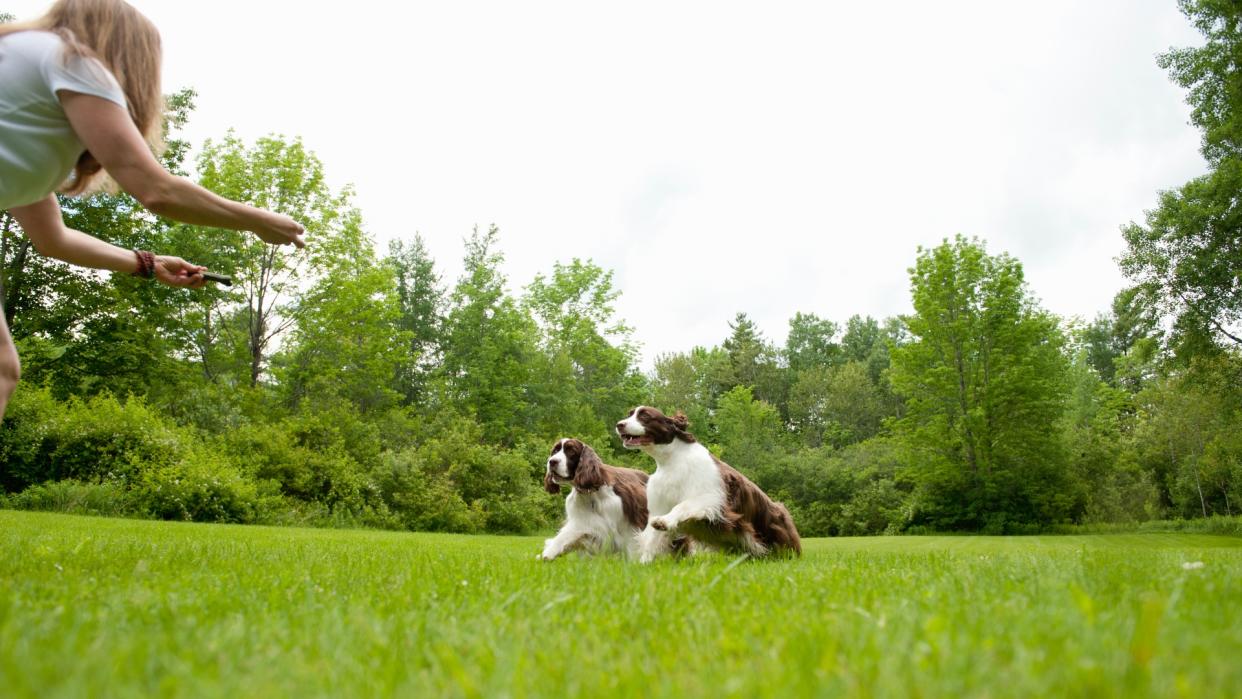Dog trainer shares five easy tips for building a reliable recall

If you're pondering the reasons why your dog's recall isn't reliable, rest assured, you're not alone.
Recall is one of the hardest skills to train because there are so many distractions in the environment that our dog's find irresistible.
However, while building a reliable recall can be difficult, it's not impossible.
In fact, armed with a few insider tips and tricks (and plenty of the best dog treats!), improving your dog's ability to come when called has never been more in reach.
Certified trainer and behaviorist Nikki Mather recently took to Instagram to share her top five super simple tips for training a reliable recall. Read on to find out what they are...
A post shared by Positive Steps Dog Training (@positivestepsdogtraining)
A photo posted by on
1. Reward using something they find motivating: "The learner (your dog) always decides what it most reinforcing. Is it food, balls, tug toys, chasers, sniffing? Test them all out and see what your dog loves most!," Mather advises.
2. Reward your dog for coming back: "ALWAYS reward them when they come back, whether you asked them to come or not! We’re teaching them how fun it is to come back to us, so let’s be consistent!"
3. Call and release: "Don’t just call them when you’re putting them on lead," explains Mather. "If you do, all they’re learning is that it’s no fun to come to you because it means all of the fun is over!" Call your dog at other times, reward them with a treat and then let them get back to having fun.
4. Use a long line: "Use a long line to begin with," advises Mather, who also says these should always be used if your dog's recall isn't reliable.
"A longline, other than for everyone’s safety, prevents your dog from rehearsing behavior you don’t like, such as running over to other dogs! If you keep providing them with opportunities to run off any play with other dogs, they’re only learning how fun that is, making your recall training extremely difficult!"
5. Consider your timing: "Don’t attempt to recall your dog whilst they’re surrounded by other dogs, or when they’ve found something great to sniff," Mather says. "Wait until they’ve finished their sniff and aren’t really focused on anything, because that’s your best possible chance of them coming back to you, so that you can reinforce the behavior! Eventually you can train in more challenging environments."
Remember, as with any new skill, training a reliable recall takes time, patience, and consistency.
If you're not seeing the results you want after several months, consult a qualified trainer for advice and guidance.

